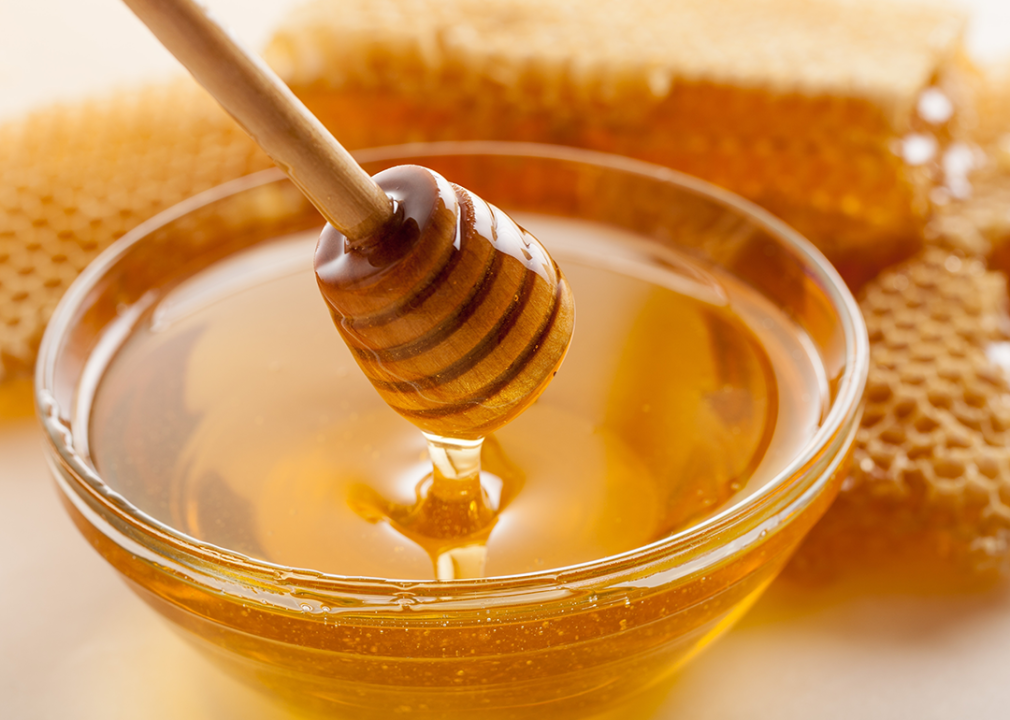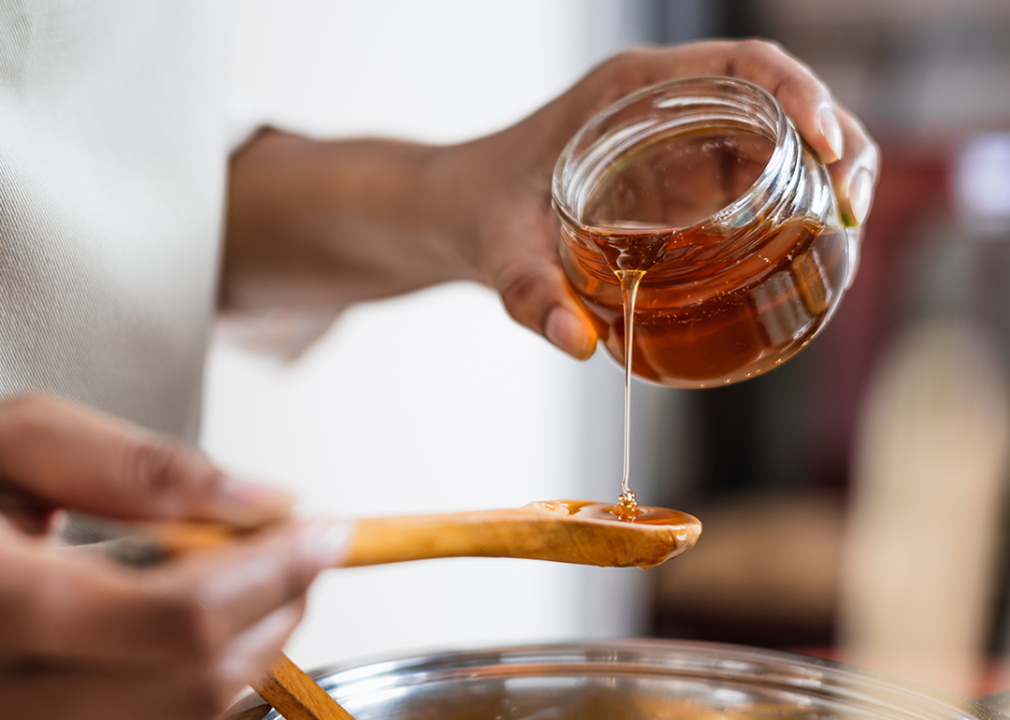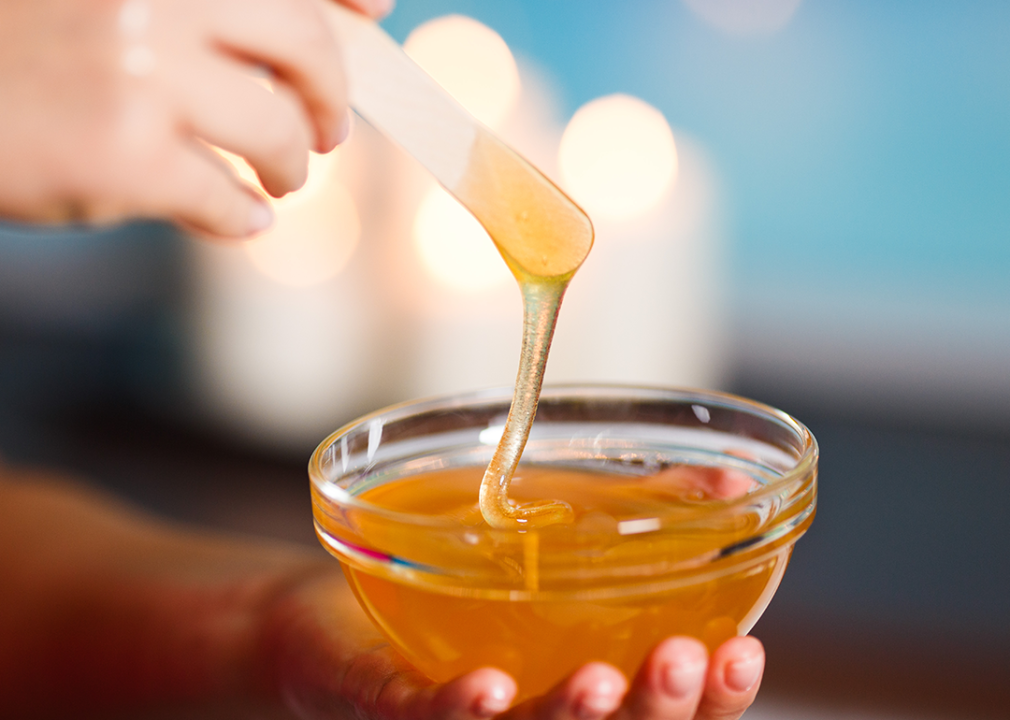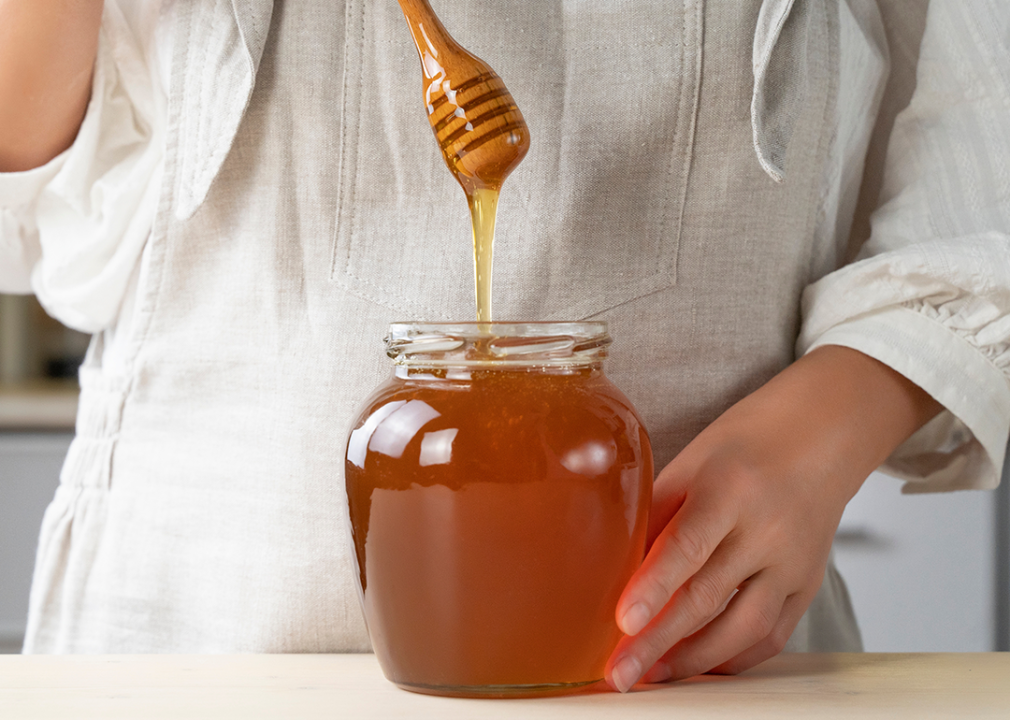5 health benefits of honey you may not know
Elvish Honey uncovered five lesser-known health benefits of honey using various scientific studies, medical journals, and news coverage.

Used medicinally since ancient times, honey soothes coughs and comforts colds. It's perfect in a cup of tea and may even reduce symptoms from upper respiratory tract infections, according to a review of 14 studies that took nearly 1,800 people into account published by BMJ Evidence-Based Medicine journal in 2020.
Many of us may already be familiar with such uses of honey due to childhood memories of homemade remedies, but honey's uses go back millennia. Humans gathering honey dates back as far as 8,000 years ago. Archaeologists have even found evidence of honey cultivation dating back at least 5,500 years in the country of Georgia.
Honey was the most popular remedy used by the ancient Egyptians, who employed it for everything from healing wounds to embalming the dead. The ancient Greeks used honey to cure gout and some nervous disorders. Islamic traditions offer honey as a healthy drink and Ayurvedic traditions from India prescribe it for eye ailments, including the prevention of cataracts, as well as in the treatment of skin disorders.
In modern times, these benefits and more continue to be studied as this golden substance—sometimes called "the nectar of the gods"—reveals more of its curative powers. Honey's ingredients and compounds are proving to be antioxidant, anti-inflammatory, and antibacterial. Along with being a natural sweetener that makes our food taste so much better, honey is a nutritional powerhouse.
Wondering what else could honey do for you? Elvish Honey uncovered five lesser-known health benefits of honey using medical journals as well as recent news coverage.
Honey might help heart health

There is evidence, according to a 2020 review in the International Journal of Environmental Research and Public Health, that honey can aid in the prevention of cardiovascular disease due to its high levels of antioxidants, including flavonoids and phenolic acids, which protect cells from free radical damage. Antioxidants help lower blood pressure, improve cholesterol levels, and reduce the risk of heart disease. A study published in 2022 from the University of Toronto, which included 18 controlled trials and more than 1,100 participants, found that honey, in moderation and in conjunction with a healthy diet, reduced bad cholesterol and triglycerides while increasing good cholesterol.
Honey can help settle an upset stomach

Sure, honey can calm a cough, but it can also calm an upset belly. Research suggests that honey can help with gastrointestinal conditions such as nausea, vomiting, and diarrhea caused by gastroenteritis. Most often, upset stomachs are due to these bacterial or viral infections, which honey's antibacterial and anti-inflammatory activities can help ward against.
A 2022 article published in the journal Scientific Reports that screened 10 different types of honey records findings from a study that proves honey might even function as a norovirus inhibitor. Norovirus symptoms typically include vomiting, cramping, and diarrhea. Growing evidence reviewed in a 2022 Frontiers in Nutrition article also shows honey not only reduces infection and inflammation in the gut but also helps balance gut microbiota.
Honey may give the brain a boost

Puzzles and games are all well and good, but why not have something sweet to go along with your brain exercises? Research into the brain-boosting properties of honey suggests that it may help memory, improve cognitive function, and offer antidepressant and antianxiety benefits. Once again, honey's natural antioxidant properties are to thank for the neuroprotective effects. While more research is needed, there is evidence from research over the last decade reviewed in Nutrients and published in 2023 shows that honey can help with dementia and Alzheimer's disease.
Honey helps heal wounds

Due to its antimicrobial properties, honey has long been used as a dressing for wounds and burns—Sumerians applied this therapeutic use as early as 2100 B.C.E. According to an updated review of honey's wound-healing properties published in Open Life Science in 2021, not only do honey's natural antibacterial agents fight infection, but its viscous consistency protects the wound or burn from dehydration. Plus, other agents in honey help initiate tissue repair.
Before the development of antibiotics, traditional medicine relied on honey to treat wounds. This therapy is once again becoming increasingly valuable given the worldwide emergence of antibiotic resistance. Studies even show that medical-grade honey is useful in the treatment of staph infections.
Honey makes for good skin care

The same antimicrobial and anti-inflammatory properties that help honey heal burns and wounds also make it good for beauty regimens, such as skin care for healing acne and eczema, or to help protect skin from environmental pollutants and damage from aging. A natural humectant, a topical application of honey moisturizes the skin and helps balance its pH. It makes for a tasty lip gloss, too.
Story editing by Carren Jao. Additional editing by Kelly Glass. Copy editing by Tim Bruns.
This story originally appeared on Elvish Honey and was produced and distributed in partnership with Stacker Studio.
Comments





